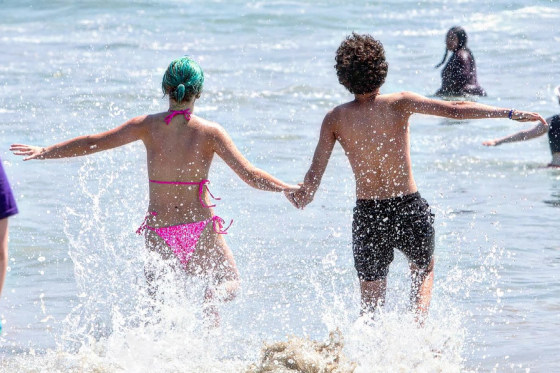Miles Barnes, a transgender teen who is neurodivergent, has been to many summer camps, but he said that until 2022, he never felt camp staffers could fully support him the way he needed. Strict schedules, 5 a.m. wake-up calls and a mandate that all campers participate in all activities triggered his anxiety and made him feel unheard. So in 2022, when his mother floated the idea of Camp Lightbulb, one of more than a dozen summer camps across the country specifically for LGBTQ youths, Miles’ interest was piqued.
Founded in 2011 by Puck Markham, Camp Lightbulb is a weeklong camp for LGBTQ youths ages 14 to 18. Markham held the inaugural program in Provincetown, Massachusetts, because of the iconic beach town’s vibrant queer community and history of embracing LGBTQ people. He recalled thinking, “Well, if I can have such a great time here, just imagine how meaningful this could be for a kid.”
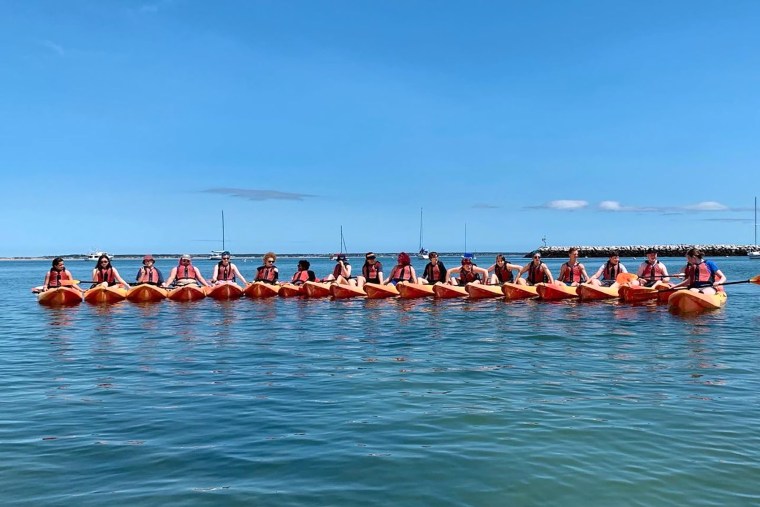
Later adding programs in Los Angeles and New York City, Camp Lightbulb focuses on offering activities that allow teens to celebrate their identities and embrace queer culture. Campers put on fashion shows, have discussions with queer elders in the community and even throw an LGBTQ prom. Markham said these uniquely queer experiences are crucial for the campers in their formative teen years.
“To have a place where you can go and be yourself and be celebrated and be with peers, and with role models and a safe and welcoming community — that means the world,” he said. “It’s a real stepping stone in their development.”
Although Miles, now 15, describes his hometown in Maine as “pretty accepting,” he said Lightbulb provides a haven for many campers who don’t experience that same level of support at home.
“I’ve met a lot of kids there where camp affects them so much, because the towns that they come from and their family environment at home are so much less accepting, and so being able to be there for a week immersion is really important to them,” he said.
Rose Solomon, 22, was one of the first campers at Camp Lilac, a summer camp in Ohio for transgender and gender-nonconforming teens. Solomon said she has seen first-hand the value of exclusively queer spaces for LGBTQ youths.
“I hope people take away from camp that they have a safe haven, a break from all of that negativity in the world, and connections they can make,” she said.
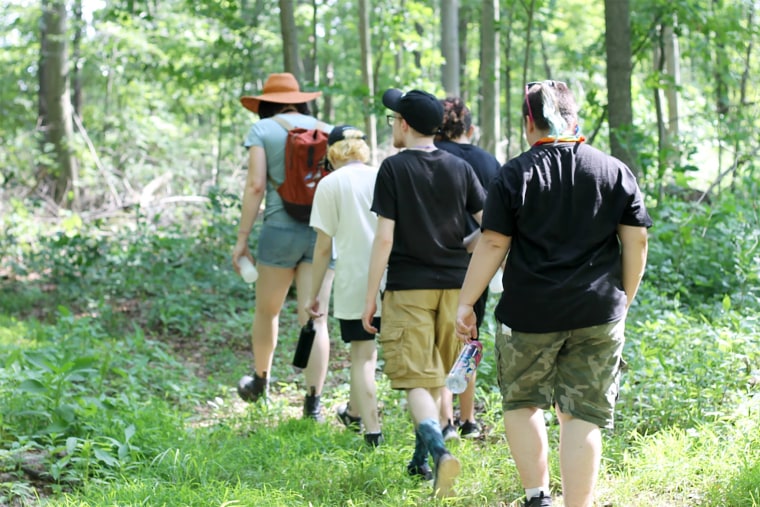
In the summer of 2016, Solomon returned home from another summer camp, and while she had fun, she wished she could find a camp specifically for transgender teens, she recalled. Her mother, JodiLyn Solomon, connected with Ann Williams through a trans family support group in Cleveland and discovered Williams’ grandchild felt the same way.
The two women decided to make the kids’ dream a reality and immediately got to work on creating Camp Lilac. JodiLyn Solomon’s older child, A.J., took on an administrative role and designed the camp’s first logo. Later that year, they got their 501(c)(3) designation.
In the summer of 2017, Williams, Solomon and a slew of counselor volunteers hosted their first cohort of 16 campers, including Rose, then 15. Since then, they have moved locations to accommodate the more than 160 campers who now call Camp Lilac their home away from home. Rose has graduated from a camper to the head of the Camper Leadership Program for older campers. She also considers herself the “resident fire expert,” due to her skills at starting and tending to the camp fires.
Kent Stanziano, the senior director of staffing and a former counselor at Camp Lilac, emphasized the importance of the classic summer camp experience for trans and gender-nonconforming youths.
“They’re kids, and this is a chance for them to get to be kids and have kid problems and not educate people on their identity,” he said. “They don’t have to teach us. They don’t have to advocate for themselves here. It’s a chance for them to just get to the kids.”
Camp Lilac, he added, “gives them a chance to have that traditional summer camp experience but also interact with people who are like them when they might not ever get that chance otherwise.”
Before her summers at Camp Lilac, Solomon had never met a transgender person in their 20s. She said interacting with older trans role models on the staff gave her hope for her future.
“This was really the first space, even for me, fully enmeshed in the trans community, where I saw, ‘Oh, there are people who made it out of their teen years identifying as trans and are just living life.’ And that was a revelation,” Rose said.
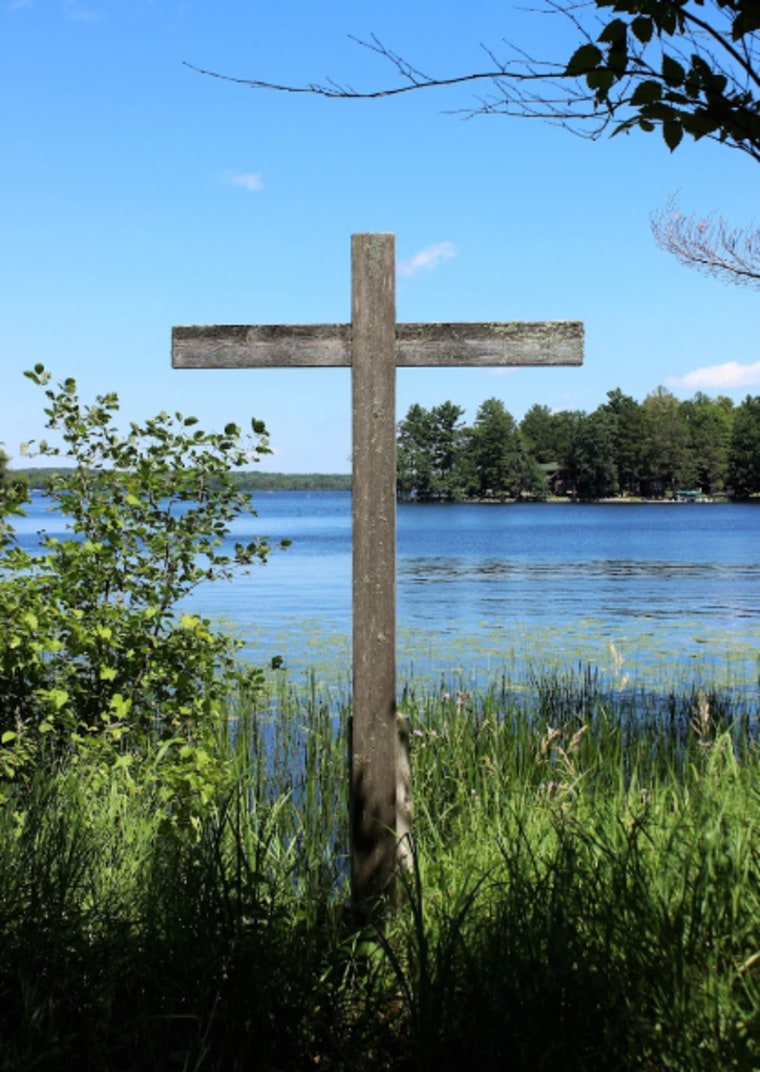
Deacon Ross Murray co-founded The Naming Project, thought to be the first Christian summer camp for LGBTQ youths, with fellow church members Jay Wiesner and Brad Froslee after realizing that there were no summer programs geared toward this community.
The Naming Project started as a weekly after-school program in a Minneapolis church basement for queer Christian teens in 2003. However, after interest grew and more kids began attending, the three church friends took the Lutheran summer camp model they had grown up with and gave it an LGBTQ-friendly update. They launched their first weeklong session in the summer of 2004 on a Minnesota lake two hours outside the city.
Programming includes typical Christian camp activities — Bible study, morning devotionals and time for spiritual self-reflection. Murray said the staff and campers are what make The Naming Project a distinctly queer summer camp.
“The people are absolutely what makes it what it is, and we look at how to make weird little twists on how we do this stuff,” he said.
These twists include changing pronouns in camp songs, playing show-tune kickball and even having a candlelit Dolly Parton-themed sermon on a pontoon. But most importantly, Murray wants to foster an environment where campers can embrace their sexual orientation and spirituality in tandem with one another.
“We’re really there to provide a safe enough space that they’re going to figure stuff out for themselves, and as a Christian, I will trust that the Holy Spirit is out there doing their work as well, in the midst of the space that we’re creating,” he said.
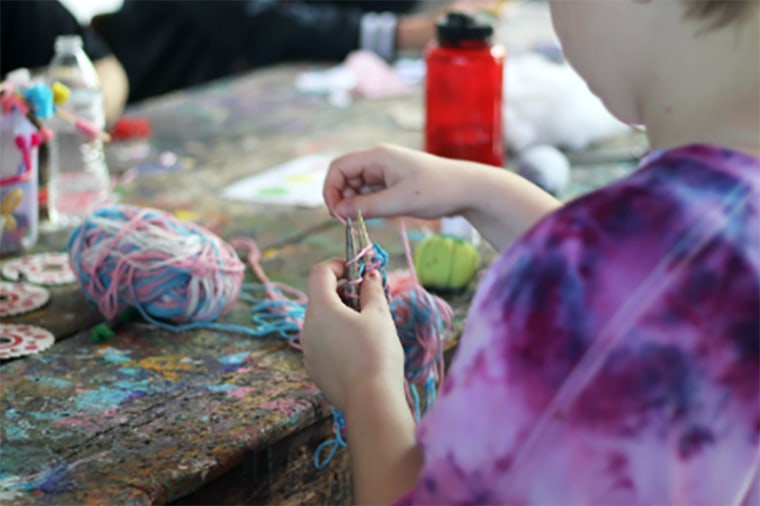
Although all three of these summer camps do their best to provide a much-needed break from the outside world for their campers, recent anti-LGBTQ legislation has been impossible to ignore, the campers and staffers said.
“In the last few years, it has started feeling more and more heartbreaking getting these kids home back into the world, and they feel it, too. They’re sad, sometimes scared to be going back to their state where every governor is out to get them,” Solomon of Camp Lilac said.
However, despite the onslaught of anti-LGBTQ sentiment in the last few years, including a rise in bias-fueled pushback in this year’s first week of Pride Month, each camp has hopes of expanding and continuing to provide spaces where kids can be themselves.
“That one week that kids are with us, they take that experience with them. It has a huge impact throughout the rest of their year,” Markham of Camp Lightbulb said. “I think now more than ever, a place like ours and other [LGBTQ] camps are super important.”
For more from NBC Out, sign up for our weekly newsletter.
